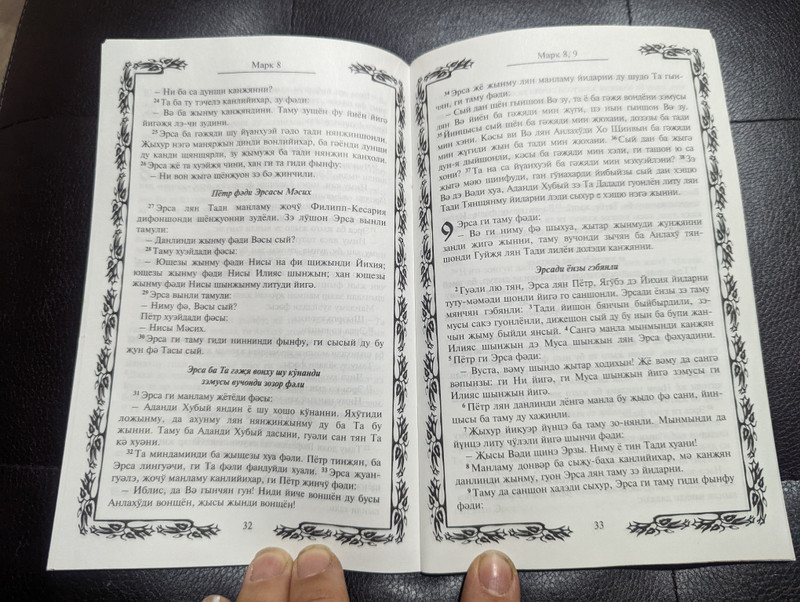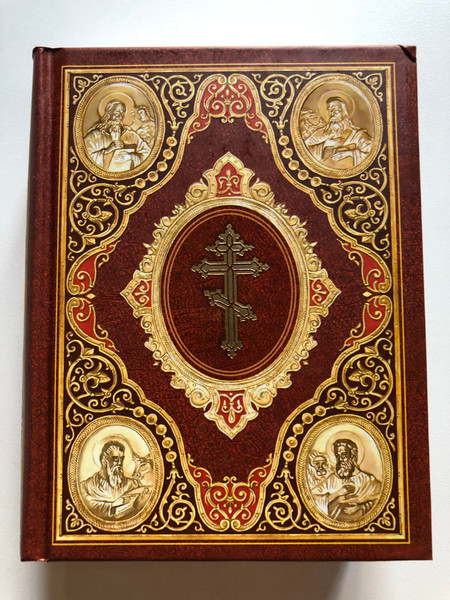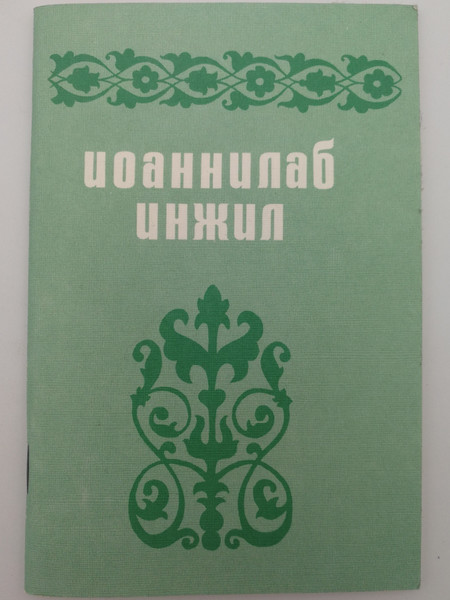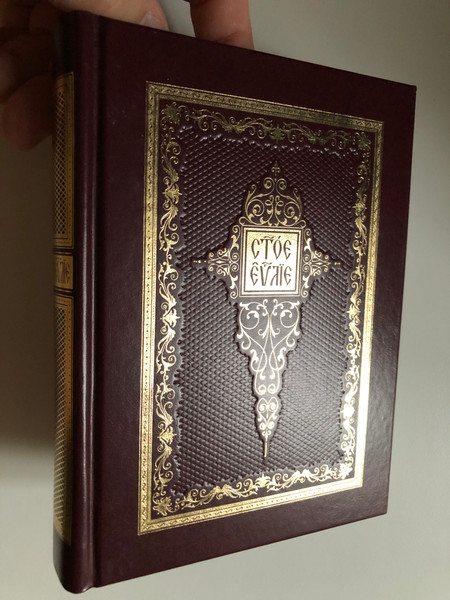Description
Dungan language Gospel of Mark / Марк шехади Инжил
Евангелие от Марка на дунганском языке / Фанйи Китабуди Янжюйуан / Paperback Staple bound
Product Features
Overview
The Gospel of Mark in the Dungan Language (Марк шехади Инжил / Евангелие от Марка на дунганском языке) is a unique publication that offers the Gospel of Mark translated into Dungan, a Sinitic language spoken primarily in Kazakhstan and Kyrgyzstan. Published in 2002 by Фанйи Китабуди Янжюйуан, this staple-bound paperback edition provides an accessible format for Dungan-speaking communities to engage with the New Testament.
Interesting Facts
- Language and Cultural Significance: The Dungan language, derived from Central Plains Mandarin, is written in Cyrillic and incorporates loanwords from Arabic, Persian, and Turkic languages, reflecting the rich cultural history of the Dungan people.
- Historical Context: The Dungan people are descendants of Hui migrants who settled in Central Asia following the Dungan Revolt's defeat in Northwestern China in the late 19th century.
- Unique Linguistic Features: The translation captures the distinct "Hui speech," which includes Islamic terminology and phrases unique to the Dungan community, marking it as a significant cultural and religious text.
Details
- Format: Paperback, Staple bound
- Pages: 72
- ISBN-13: 978-9189122826
- ISBN-10: 9189122828
- Publisher: Фанйи Китабуди Янжюйуан
- Language: Dungan
Introduction to the Dungan Language
Dungan (/ˈdʊŋɡɑːn/ or /ˈdʌŋɡən/) is a Sinitic language spoken primarily in Kazakhstan and Kyrgyzstan by the Dungan people, an ethnic group related to the Hui people of China. Although it is derived from the Central Plains Mandarin of Gansu and Shaanxi, it is written in Cyrillic (or Xiao'erjing) and contains loanwords and archaisms not found in other modern varieties of Mandarin.
The Dungan people of Kazakhstan and Kyrgyzstan (with smaller groups living in other post-Soviet states) are the descendants of several groups of the Hui people that migrated to the region in the 1870s and the 1880s after the defeat of the Dungan revolt in Northwestern China. The Hui of Northwestern China (often referred to as "Dungans" or "Tungani" by the 19th-century western writers as well as by members of Turkic nationalities in China and Central Asia) would normally speak the same Mandarin dialect as the Han people in the same area (or in the area from which the particular Hui community had been resettled). At the same time, due to their unique history, their speech would be rich in Islamic or Islam-influenced terminology, based on loanwords from Arabic, Persian and Turkic languages, as well as translations of them into Chinese. The Hui traders in the bazaars would be able to use Arabic or Persian numbers when talking between themselves, to keep their communications secret from Han bystanders. While not constituting a separate language, these words, phrases and turns of speech, known as Huihui hua (回回話, "Hui speech"), served as markers of group identity. As early 20th century travellers in Northwestern China would note, "the Mohammedan Chinese have to some extent a vocabulary and always a style and manner of speech, all their own".
Publishers
- Publisher: Фанйи Китабуди Янжюйуан
- Year: 2002
Hashtags
#GospelOfMark #DunganLanguage #DunganCulture #HuiPeople #BiblicalTranslation #ChristianLiterature #CyrillicScript #IslamicTerminology #CulturalHeritage #LanguagePreservation
.jpg)
.jpg)
.jpg)
.jpg)











































